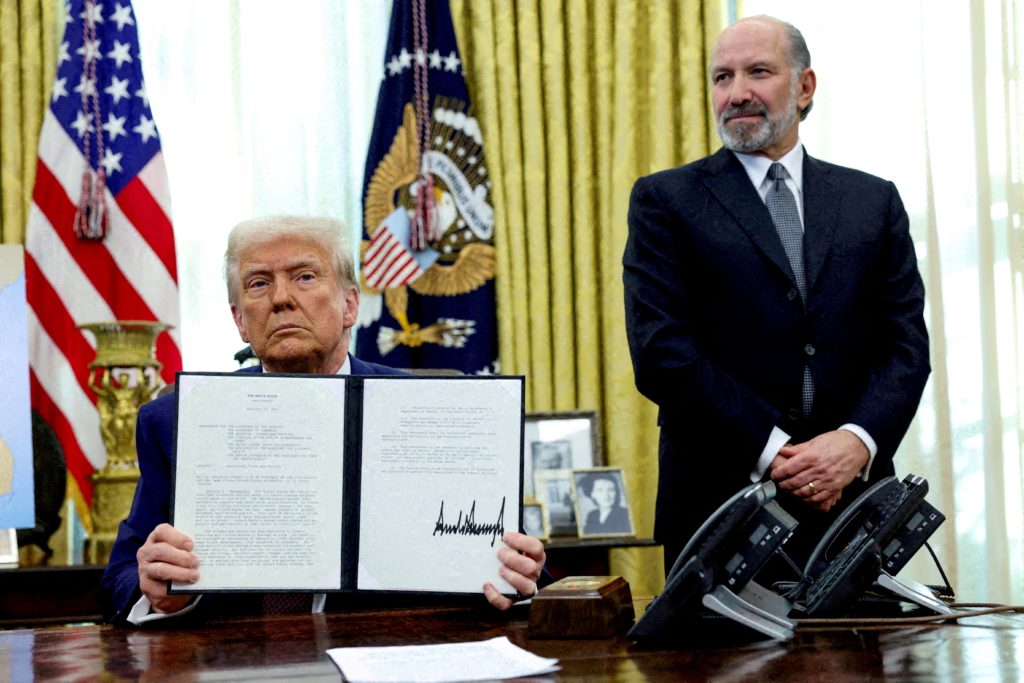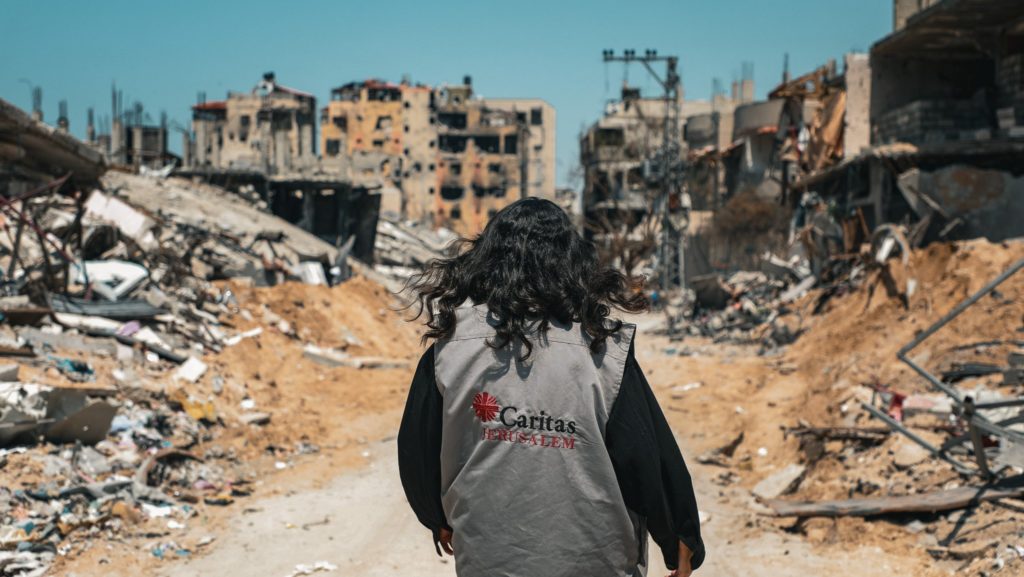One of the most famous quotes from British writer G.K. Chesterton is something he calls a paradox.
“There exists in such a case a certain institution or law; let us say for the sake of simplicity, a fence or gate erected across a road. The more modern type of reformer goes gaily up to it and says, ‘I don’t see the use of this; let us clear it away.’ To which the more intelligent type of reformer will do well to answer: ‘If you don’t see the use of it, I certainly won’t let you clear it away. Go away and think. Then, when you can come back and tell me that you do see the use of it, I may allow you to destroy it.’ ”
He wrote those words in “The Thing: Why I Am a Catholic” back in 1929. In other words, Chesterton was saying, do not remove a fence until you know why it was put up in the first place.
That maxim came to mind recently as President Donald Trump announced he would be imposing tariffs on foreign goods coming to the United States.
Free trade has been a concrete aspect of Western doctrine since the end of World War II. But why?
The modern free trade system emerged after World War II, when the U.S. helped establish the General Agreement on Tariffs and Trade (GATT) — now the World Trade Organization (WTO) — to help strengthen the Western world’s relationship.
The new collaboration lowered tariffs and opened markets, changing the way the world economy worked: bringing U.S. families Japanese and German cars, for example.
Before World War II, the United States was one of the chief users of tariffs, which were the main source of the national government’s income before the federal income tax began in 1913. Many supporters in the first 175 years of the nation’s history credited the rise of America’s economy to the prevention of foreign competition.
However, after two world wars, the United States felt building economic ties would decrease the possibility of conflicts between countries — after all, they would be more interconnected if they were trading more.
Trump’s decision to reintroduce tariffs raises the question: Even if tariffs can improve a country’s home economy, can the world revert back from the integral system that has emerged over the last 70 years?
Right now, it seems the answer is: not easily. Stock markets around the world crashed after Trump announced his tariffs, but as of this writing, Trump had paused most of the tariffs out of the fear generated by the economic consequences.
But there are still plenty of problems to contend with as the world learns how interconnected it now is. Even the small businesses the tariffs were meant to protect, for example, were getting many of their products from overseas.
One nation people haven’t focused on will also feel the punch: the Vatican.
Although the small papal city-state doesn’t have a manufacturing industry, it does rely highly on the world economy. Donations from around the world are affected by economic uncertainty, even if the stock market recovers.

But more importantly, the international aid that often is administered by the Vatican directly and indirectly has now suffered a double hit. First, Trump suspended much of this aid, causing agencies supported by Caritas International to cut staff and end programs. Now, the money supported by the Holy See’s financial earnings is being hit, as stock prices fall, and other earnings get lowered. (In a bit of irony, the beginning of Trump’s term coincided with the temporary closure in January 2025 of the only supermarket for Vatican City residents for renovation work).
Brian Burch, Trump’s nominee for U.S. ambassador to the Holy See, told the U.S. Senate at his April 8 confirmation hearing that the president acknowledges the importance of the Vatican.
“The Holy See, as the governing body of the Catholic Church, plays a critical and influential role in international affairs. We can and we must continue our strong partnership, while advancing our mutual interests in addressing an array of global challenges, including working to resolve war and conflict in multiple regions around the globe, religious persecution, the exploitation of the poor and vulnerable, the scourge of human trafficking, and the defense and promotion of human dignity and prosperity,” he said on April 8.
But he didn’t really bring up some of the tension between the president and current pontiff over immigration and helping the poorest nations around the world.
Pope Francis is known for being a particularly hands-on leader of the city state he governs, and his current medical issues mean he is less informed and less involved in the day-to-day running of the Church. In many ways, this is leaving the Vatican more paralyzed in dealing with the sudden global economic fears that are percolating during the first months of the Trump administration.
Many observers were predicting that round two of Francis vs. Trump was going to be a thunderous affair. But the sequel might be a silent movie, which is even more frightening.

